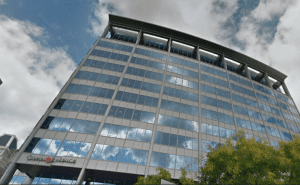 As part of our continuing study of the most interesting candidates running for Mayor, we’ve been focusing recently on David Warnock.
As part of our continuing study of the most interesting candidates running for Mayor, we’ve been focusing recently on David Warnock.
Mr. Warnock has an exceptional story. A self-made millionaire venture capitalist, in many respects he is a personification of the American dream, an example many in the City of Baltimore will envy and hope to emulate. But is he the best, the right choice to lead the all-inclusive economic recovery and growth, to create the jobs that will, sooner rather than later, eliminate the unemployment and poverty that have plagued the city for generations – and that are, without question, the root cause of so many of Baltimore’s problems?
And so the question is, how serious is he about helping Baltimore? Yes, Mr. Warnock has personally contributed millions of his own money, through the Warnock Foundation and in other ways, to help Baltimore’s struggling families. It’s impressive philanthropy, but what about his business, What about Camden Partners?
His personal wealth notwithstanding, his company, Camden Partners, controls substantially more money for the purposes of investing in companies whose stock it buys, holds and eventually sells. Venture capitalism is both an art as well as a science at which David Warnock clearly excels. So exceptional are skills at identifying and managing these investments that it’s safe to assume that his investors will be reluctant to see him leave Camden Partners – even if it’s to become Mayor of Baltimore.
In fact, it’s completely understandable and entirely reasonable for his investors to require that he honor any personal commitments, legally binding obligations that he may have made when procuring their funds. It is the potential existence of those obligations, which would be normal for an executive in his position to make, that caused us to ask in a recent article about potential conflicts of interest that should be resolved by Mr. Warnock to the voters’ satisfaction, prior to the onset of early voting next month.
About Camden Partners in which Mr. Warnock is the senior, controlling partner…
1. The company has no Black employees, not at any level. It’s important that voters ask him why not and whether or not Camden Partners has ever had any African American employees and at what positions.
His having recently added two prominent African Americans – Wes Moore and William Jews – to Camden Partner’s Advisory Board doesn’t count. These men are advisors, not employees. They’re people with whom he has had business interests. And the timing of their addition to his Advisory Board is, honestly, suggestive of a political motive.
2. Of all the companies in which Camden Partners has invested, how many of them are actually based in the city of Baltimore? Especially in the city’s disadvantaged neighborhoods? With all that Camden Partners has invested, exactly how many jobs for Baltimore’s unemployed and underemployed families has all that money actually created?
According to an April 1, 2014 article in the Baltimore Business Journal, Camden Partners created a fund – a legal entity that can attract capital and make investments – for which David Warnock and his team raised an impressive $103 million.
“Wow!“
We agree.
According to the article’s headline, “Camden Partners closes $103 million fund, eyes Maryland firms for investments.” In this case, the word “closes” indicates that the entity raised its full $103 million objective.
So what did Camden Partners do with the first millions that it raised for this fund? It invested in five companies located in Raleigh, NC, Atlanta, Chicago and Los Angeles. To quote from the article…
“We’re geography agnostic, but we’d love to do more Maryland deals,” said Christopher Kersey, a Camden Partners managing member.
Investing in companies near where a private equity firm is headquartered makes it easier for the firm’s executives to make regular visits.
“It’s a heck of a lot easier when you’re at the company on a regular basis, rather than once a quarter,” Warnock said.
In its earlier funds, Camden Partners bought stakes in two Baltimore-area companies: Towne Park, the Annapolis valet parking company and Calvert Education Services, a Hunt Valley provider of educational courses for home-schooled children.
Camden Partners had a controlling stake in Towne Park, which it sold in January to Boston private equity firm TA Associates. The firm still owns a stake in Calvert Education Services, Warnock said.
Neither of the two Maryland companies mentioned are based in the city, let alone in the communities that are struggling – and where free land, zero property taxes and city subsidies could have been made available to encourage them to locate there.
Some of the jobs created by Towne Park, which is based in Annapolis, are in Baltimore, but mostly, if not all, involve relatively low-paying positions parking cars.
The point is, David Warnock’s company doesn’t have any Black men or women working for it at its 12th story Pratt Street offices overlooking the harbor, nor are any of the companies in which it has invested based or otherwise operating in the city, generating a material number of jobs, directly or indirectly.

Okay, why not? David Warnock is, without question, a charitable man whose many gifts have benefited the city of Baltimore. But when it comes to business, his interests seem to lie elsewhere. Why is that? As brilliant a venture capitalist as he is, in the 19 years he’s been in business, could he not find at least a handful of comparably profitable investments to make in Baltimore companies or in companies from outside the city who might expand or relocate here?
And if he can’t see the potential, the upside Baltimore has to offer to employers – for companies that he funds and controls – can voters seriously rely upon him to turn the economy of Baltimore around?
Saving Baltimore is not a matter of charity. Without question, Baltimore’s disadvantaged neighborhoods are, as we like to say here, “Opportunity’s New Frontier.” If David Warnock doesn’t see that, doesn’t really believe it – in his head, his heart and corporate wallet – he can’t be Mayor.


